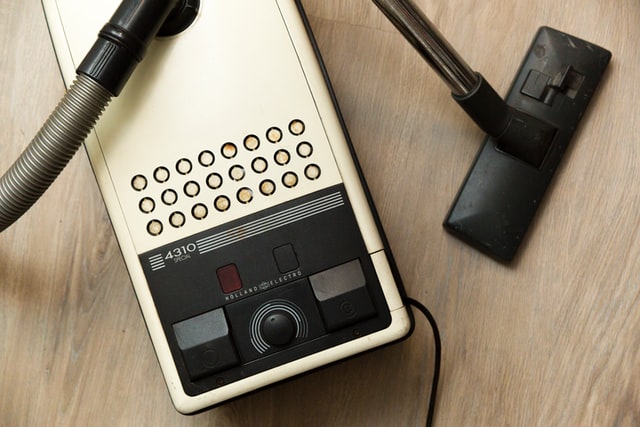Getting rid of the mindset that prevents you from writing.
The need to be ‘perfect’ stopped me from writing sooner.

As a recovering perfectionist I want to show you how it held me back. The need to be ‘perfect’ has gotten in the way of completing almost any task I have ever undertaken. It was when I began to let go of my perfectionism that my life began to get better and I also started to write more.
I want to help you recognise perfectionism, how it shows up and how to fight it.
To do this, I am going to use my experience with hoovering (vacuuming) as an example.

The hoovering was not getting done regularly in our house. I blamed the hoover we had. It had a bag and because changing the bag was awkward I did not do it as often as I could have. The suction was not great either and the newer models were a lot more efficient. Obviously, a shiny new brand name would make much more sense.
So, I changed the tools.
I could never hoover if the floor was not clear. I had to be able to hoover the whole floor or there was no point. Hoovering just a section was never an option for my perfectionism. Clearing the floor was difficult because I did not have a place for all of the toys, clothes, large baby items etc, on the carpet so I felt defeated before I began. The ‘all or nothing’ perfectionist thinking was strong in my mind.
One of the insidious traits of trying to be ‘perfect’ is that the criteria are not clear. I was using external criteria to compare myself against. What I thought visitors to my house wanted to see. Or, the social media photographs of idealised life displayed against the backdrop of perfectly clean houses.
Perfectionism is never satisfied. It is only ever negative and it will only ever focus on what has not been done. As a counterpoint, excellence is achievable goals and standards.
How to Change your Mindset
I started by looking at my expectations. The first lockdown in Ireland helped with this because there were no visitors. So, I had to have a proper think about who am I actually hoovering for. I realised that I, me, deserved to have a clean carpet. That the act of walking into my sitting room was more relaxing for me if my carpet was clean. Focusing on my why became my motivation.
Acknowledging that I just did not like the process of hoovering also helped. I stopped magically expecting that to change and allowed myself grace. Hoovering regularly or less often has not changed this. I have tested both approaches and my feelings towards hoovering did not change. But I tried different methods.
I looked for help. For me this was the Flylady website link. Her system of cleaning actively works against my perfectionism. This provided a counter argument to the ‘logic’ my perfectionism produced. This perfectionist ‘logic’ is not based on any evidence.
My adjustment period included reading her words of encouragement. Reading testimonials of other people who felt the same way I did helped me to feel like I was not the only one.
My new experiences
Recently my son wanted to have a go at hoovering and I was able to put my perfectionism to the side. I focused on the idea that any help is better than no help. I was able to be gracious when he was ready to stop. It is easier to give others grace now that I have started to give myself grace.
He kept me company, chatting away as I finished which made a difficult task more bearable. It became a lovely shared moment between the two of us.
If I had listened to my perfectionism I would have been angry that he wanted to help, angry that he wanted to finish and annoyed that I was doing all of the hoovering on my own.
Using this method to help you with your writing
So, how can this help you get started with your writing?
Start by looking for what you enjoy in the process. I hope you are trying to write because it gives you a sense of joy or release. Whether that is journalism, fiction writing, song writing etc. Do it for yourself first. You are important enough to write for.
Look at your thoughts around writing. Do you have an inner critic telling you there is no point in starting? A perfectionist mindset telling you that it is not going to be any good so what is the point in starting?

Write (type or dictate) what these thoughts are? Can you hear any of them being said in a particular person’s voice? Even if that person never actually said those exact words to you.
Can you go even deeper to understand the source of those thoughts? A lot of my critical thoughts come from my perfectionism. But that comes from my low self esteem where if I can not be ‘perfect’ then I am no good which then extends out to my surroundings, actions etc.
This is an important step. You need to recognise that you are having these thoughts before you can figure out how to change them.
Next, you need to replace the negative, unhelpful thoughts with constructive ones. If you are only starting this process then look for external sources of positivity or encouragement. If you have already been working on your mindset or doing self work, you could try writing your own positive phrases to counter the negative ones.
One of mine that I use regularly is ‘I deserve to write’.
Lots of professional writers struggle to write. Research and see can you find which of your favourite writers speak about their struggles. Remember that song writing, video game writing and graphic novels all require someone to sit down and write.

Action Steps
Your three Action Steps are:
- Acknowledge the thoughts that are getting in your way when you think about sitting down to write.
- Replace these unhelpful thoughts with more productive ones.
- Find a writer that talks about their struggles so that you can see that you are not on your own.
And remember – Your Writing Matters.

0 Comments on “Getting rid of the mindset that prevents you from writing.”